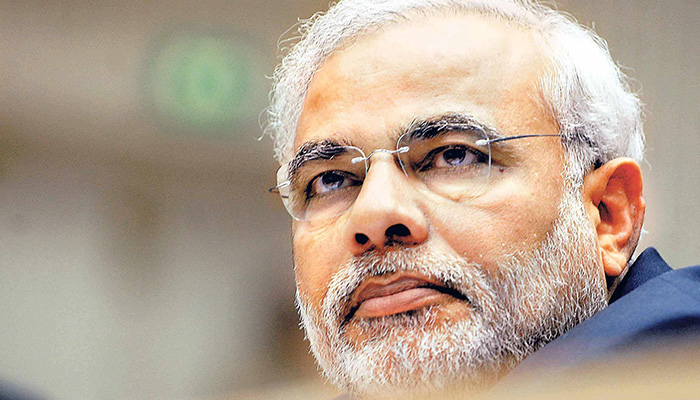Unforgettable History: Subhaschandra Bose influenced British
Such twists in history are strange. Shake the world. The fate of hundreds of millions of countries is changing.
 |
| Subhas Chandra Bose |
Franklin Roosevelt, president of the United States during 1933-1945, advocated the decolonization of the colonies of European countries. For centuries, England, France, Portugal, Spain, and the Netherlands (Holland) have been shattered by the collapse of their colonization. The agony of Asia-Africa was over. In the 18th century, there was a great conflict in the 18th century when white supremacist America sought independence from England.
In the 1930s, America witnessed spectacular economic prosperity. Warplanes and weapons were plentiful. In a way, America also needed a bigger market. If many countries in Asia and Africa came out of the frenzy of European colonialism, there would be increased market opportunities for America indirectly.
At that time, there was no worldwide network of spying as it is today. Neither Germany, England nor France had much information about the economic prosperity of the United States and the stockpile of armament. The Soviet Union, on the other hand, was still trying to increase its Communist forces.
Even though World War II broke out in 1939, America did not go through a nose. A joint declaration was made in August 1941 between Roosevelt and British Prime Minister Winston Churchill at Newfoundland, Canada. Historians call it the 'Atlantic Charter'. In Article 3 of this Declaration, “All people of all lands have the right to form governments of their own free will. It should be respected. Wherever they are deprived of such an opportunity, they should have the opportunity to create their own governments with sovereign authority. ”
Churchill, however, was a very colonial monster. He did not insist on his own interpretation of Article 3, which is not clear. On 9 September 1941, the British 'House of Commons' clarified this charter. Churchill stated that this clause was not the dominant role in joint negotiation and declaration. At this time of the Nazi invasion of Germany, it stated that it had the primary intention of saving the sovereignty and existence of European nations.
Five months later, in a radio broadcast, Roosevelt declared, "The Atlantic Joint Declaration applies to the entire world, not just to the Atlantic Ocean countries." It was also featured in the February 24, 1942 issue of The Times, London.
During that period of 1942, there was pressure, for the sake of US independence. Breckinridge Long, who was then Assistant Secretary of State, said on February 25, “There was an anti-British disagreement with the US Senate Foreign Affairs Committee. India should give the country autonomy. America has helped Britain through the 'Lend-Lease'. The committee urges that India should be given autonomy. ”
This 'lend-lease' was the most prosperous American treaty of arms and other supplies to England during World War II. Part of it is debt, survival, and generosity. Funnily, this debt was paid off by England until 2006. That is, the 1941 'Lend-Lease' loan paid off over a period of 65 years. Similarly, some other European countries were helped by America during the war.
“The Allies need the support of the natives of India during the war. For that reason, India should be given autonomy ”, Roosevelt insisted. But Churchill is very, very naughty. “America should not worry about India; Americans don't know about India; He said that the pressure on the matter was "gonna". Roosevelt did not want Churchill to face off against him. When the 'Quit India' movement started in India in 1942, the British were relentless and threw Congress leaders into jail. Chiang Kai-shek, then president of China, wrote a series of protest letters to Roosevelt. Chiang Kai-shek's wish was not to curb the Indian independence movement. Roosevelt transferred the letters to Churchill. “This is an official phenomenon in China.
Stories of history are strange. Roosevelt passed away in April 1945. Harry Truman later became president. The aftermath of the atomic bomb blast, the destruction of Germany and Japan, is for us. Despite winning the war to the name, England was in dire straits. Churchill lost the elections in 1945, the Labor Party won and Clement Attlee became Prime Minister. At that time, there was nothing left for England to exploit and plunder in colonies like India. It was enough for Atlee to wash her hands. Truman also advocated Roosevelt's idea of decolonization but proceeded with caution. This was because he had to change his way of working to prevent many of the autonomous colonies from embracing the Soviet Union-Russia bloc.
The Chief Justice of West Bengal, P.B. The Emperor was acting as the Governor in 1956. Clement Atlee, who was on a tour of India, stayed for two days in the palace of Kolkata. After the Quit India Movement of 1942, there was no pressure in 1947. But how did India get autonomy? When asked, 'Attlee,' then, did the army out of loyalty to the British. Subhash Chandra Bose's influence on the army. So I had to give it autonomy. ” Attlee was the British Prime Minister from 1945 to 1951, and for this reason, India was able to gain autonomy in 1947.
Questions revolve around that! If Churchill continued to be Prime Minister in 1945, India would not have gained independence. For the sake of a financially depressed England, he sucked the country for more than the blood of the Indians, along the lines of Ethiopia and Somalia. Churchill, the most ardent anti-India and pioneer of colonialism, should also call us the Prime Minister in 1951. Such twists in history are strange. Shake the world. The fate of hundreds of millions of countries is changing.

Comments